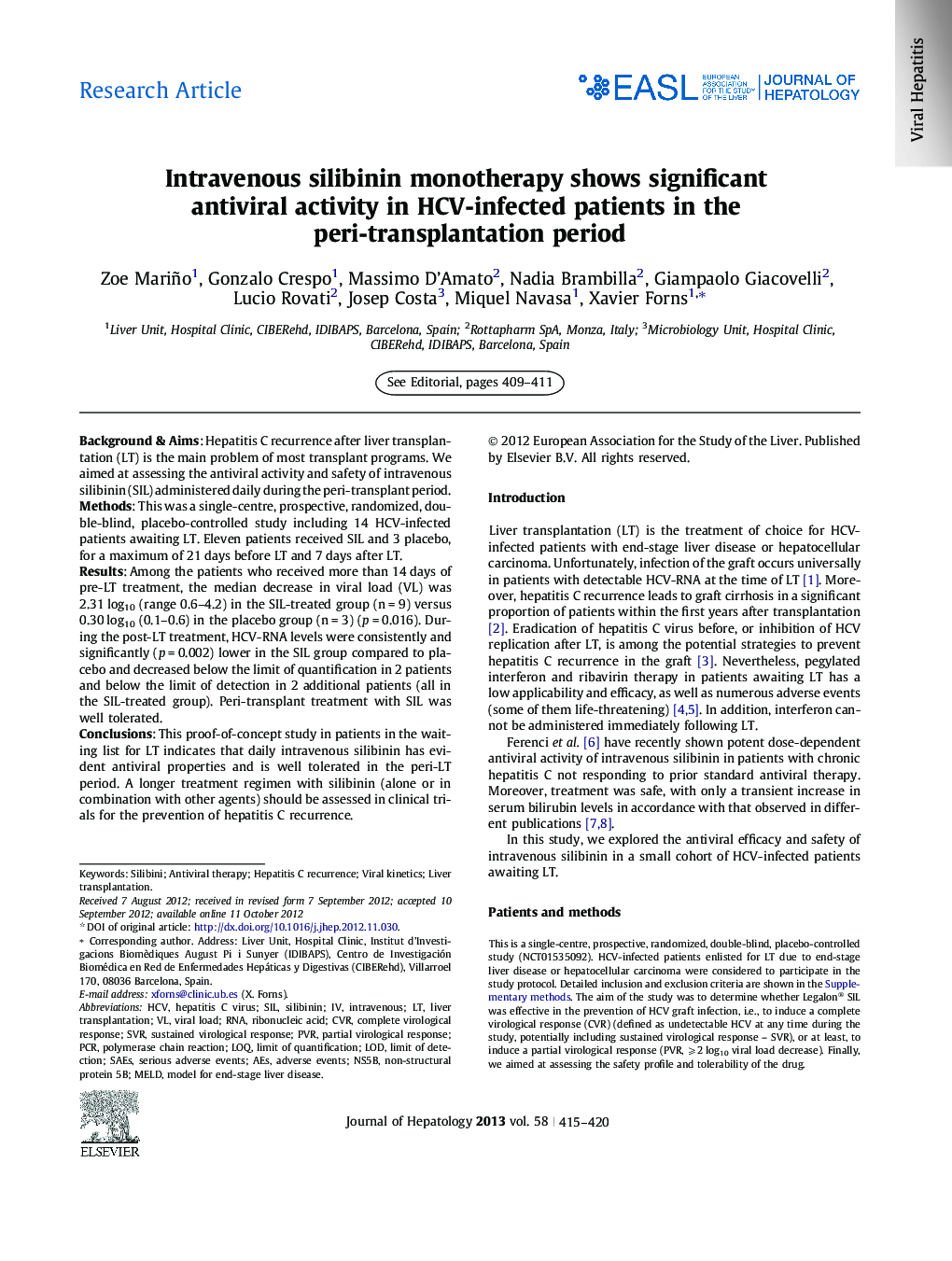| Article ID | Journal | Published Year | Pages | File Type |
|---|---|---|---|---|
| 6105667 | Journal of Hepatology | 2013 | 6 Pages |
Background & AimsHepatitis C recurrence after liver transplantation (LT) is the main problem of most transplant programs. We aimed at assessing the antiviral activity and safety of intravenous silibinin (SIL) administered daily during the peri-transplant period.MethodsThis was a single-centre, prospective, randomized, double-blind, placebo-controlled study including 14 HCV-infected patients awaiting LT. Eleven patients received SIL and 3 placebo, for a maximum of 21 days before LT and 7 days after LT.ResultsAmong the patients who received more than 14 days of pre-LT treatment, the median decrease in viral load (VL) was 2.31 log10 (range 0.6-4.2) in the SIL-treated group (n = 9) versus 0.30 log10 (0.1-0.6) in the placebo group (n = 3) (p = 0.016). During the post-LT treatment, HCV-RNA levels were consistently and significantly (p = 0.002) lower in the SIL group compared to placebo and decreased below the limit of quantification in 2 patients and below the limit of detection in 2 additional patients (all in the SIL-treated group). Peri-transplant treatment with SIL was well tolerated.ConclusionsThis proof-of-concept study in patients in the waiting list for LT indicates that daily intravenous silibinin has evident antiviral properties and is well tolerated in the peri-LT period. A longer treatment regimen with silibinin (alone or in combination with other agents) should be assessed in clinical trials for the prevention of hepatitis C recurrence.
